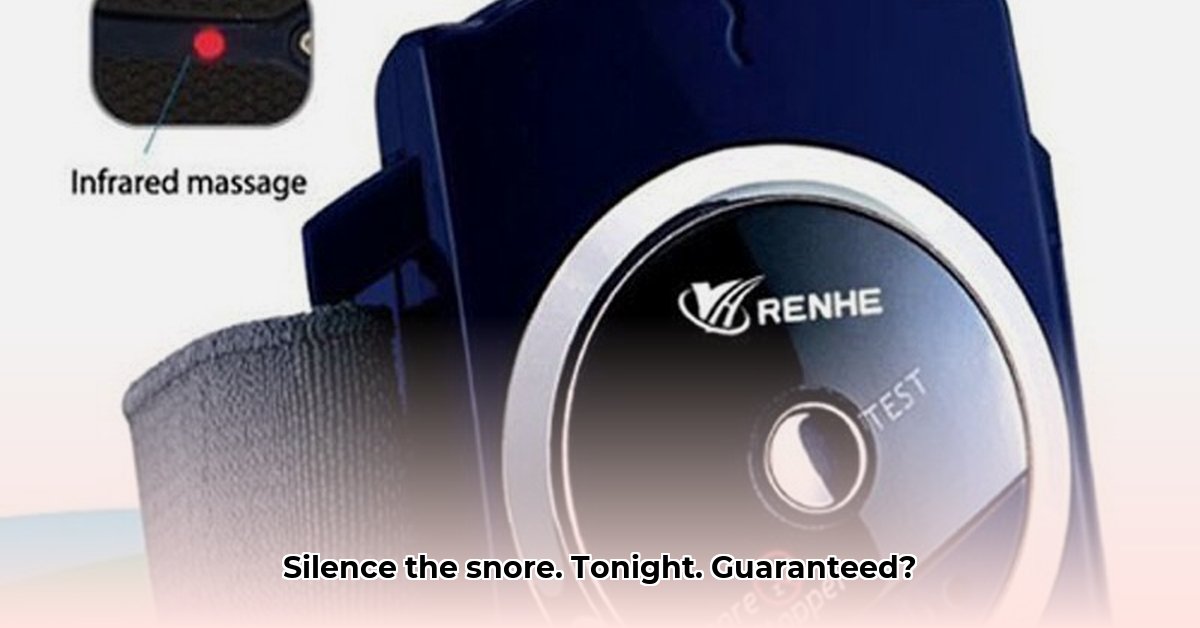
Understanding Your Snoring: The First Step to a Quieter Night
That rasping, rumbling sound – your snoring – is more than just a nuisance. It can disrupt your sleep, leave you feeling tired during the day, and strain relationships. But snurken verhelpen (stopping snoring) is achievable. This guide will navigate you through understanding your snoring and finding the right solution for you.
Decoding the Snore: Is It Simple or Serious?
First, let's clarify. Is it just a bit of a snore, or something more significant? A simple snore is the common, noisy breathing during sleep. However, sleep apnoea involves repeated pauses in breathing, potentially posing health risks. A doctor can diagnose the difference, focusing on symptoms like daytime sleepiness, gasping during sleep, and morning headaches. Knowing which applies to you is crucial in choosing the right treatment.
Why Are You Snoring? Common Culprits
Several factors contribute to snoring. Understanding these will help you tackle the root cause:
- Extra Weight: Carrying extra kilograms increases the likelihood of snoring. The extra tissue around your airways can restrict airflow.
- Alcohol and Smoking: Both relax the muscles in your throat, making you more prone to snoring. Avoid these, especially before bed.
- Sleeping Position: Sleeping on your back can worsen snoring. Try sleeping on your side.
- Anatomy: Sometimes, it’s simply your throat and nasal passage structure.
Lifestyle Changes: Simple Tweaks for a Big Impact
Before considering medical interventions, make lifestyle changes. Many people find significant relief just by adjusting certain habits:
- Weight Management: Even a small amount of weight loss can significantly improve snoring.
- Sleep Position: Try sleeping on your side. A tennis ball sewn into the back of your pyjamas can help you stay on your side.
- Alcohol and Tobacco Avoidance: Avoid alcohol and cigarettes, especially before bed.
- Regular Exercise: Improves overall health, including breathing and muscle tone.
- Elevating Your Head: Using extra pillows to elevate your head slightly can help keep airways open.
Medical Solutions: When Lifestyle Changes Aren't Enough
If lifestyle changes don't sufficiently address the snoring or of you suspect sleep apnoea, consult your doctor or a sleep specialist. They might suggest:
Oral Appliances: Custom-made mouthpieces keeping your airway open while you sleep. "These might feel unusual at first, but many find them comfortable and effective," says Dr. Sarah Jones, ENT Specialist at Cape Town ENT Clinic.
- Pros: Less invasive than surgery.
- Cons: Can be costly and might cause initial discomfort.
Surgery: Surgical options widen the airway. This is usually considered if other options fail.
- Pros: Potentially long-term relief.
- Cons: Invasive procedure, carries risks, involves recovery time.
CPAP Therapy: A mask delivers continuous airflow, preventing breathing pauses during sleep. This is frequently used for sleep apnoea.
- Pros: Very effective for sleep apnoea.
- Cons: Can take some getting used to; the mask might feel claustrophobic initially.
Choosing the Right Treatment: A Personalised Approach
The best approach depends entirely on your individual circumstances. Your doctor will assess your snoring, any underlying conditions, and the severity, and advise on the best path forward. Remember, a good night's sleep is crucial for your health and wellbeing.
Maintaining Long-Term Success: The Ongoing Commitment
Snurken verhelpen isn’t a one-time fix; it requires ongoing effort. Maintain a healthy weight, avoid alcohol and smoking before bed, and consistently use any prescribed treatment. Regular check-ups with your doctor are essential.
Conclusion: Your Journey to Peaceful Sleep Begins Now
Don't let snoring steal your sleep. Take the first step today. Contact your doctor or a sleep specialist for assessment and guidance. You deserve peaceful, refreshing sleep.